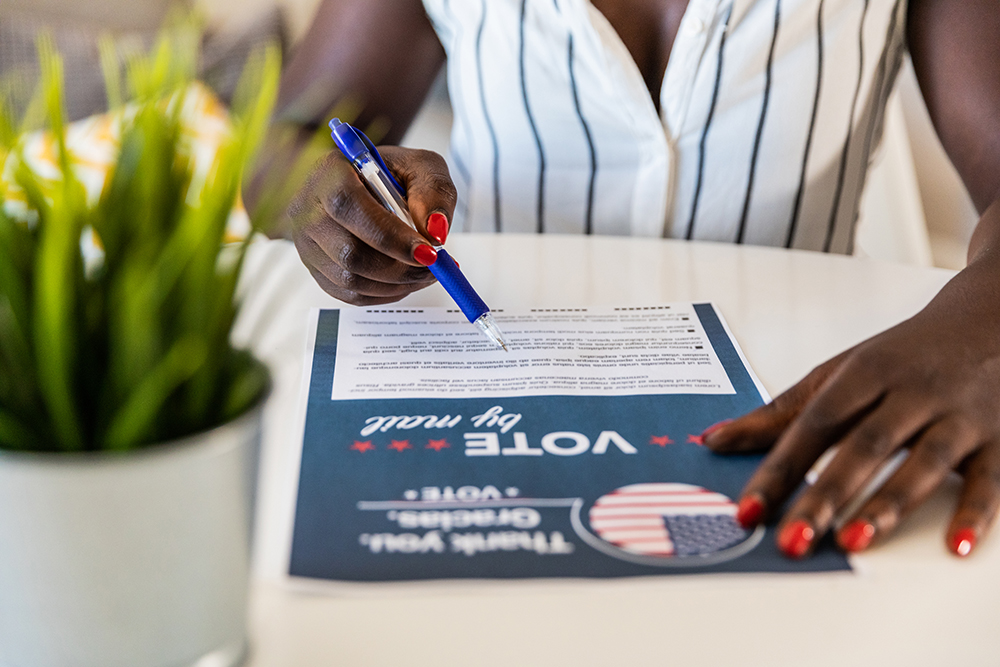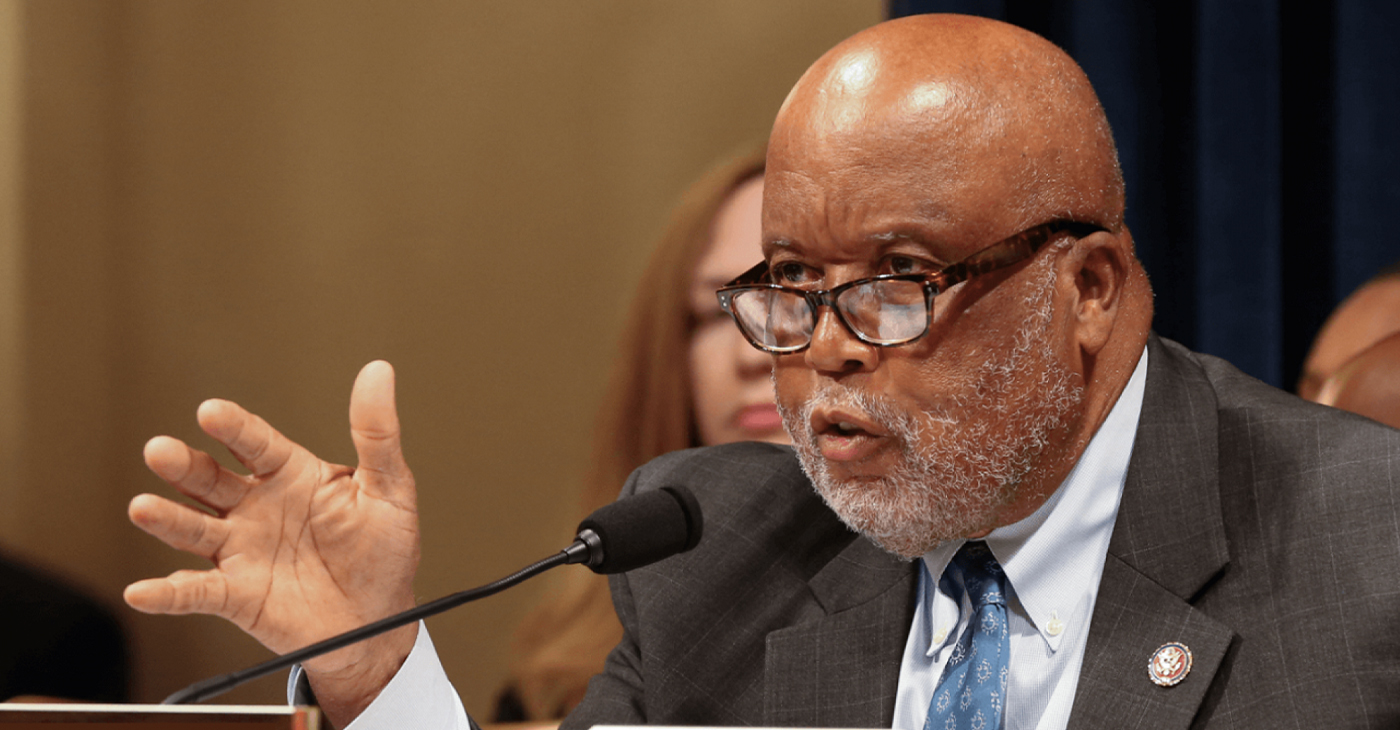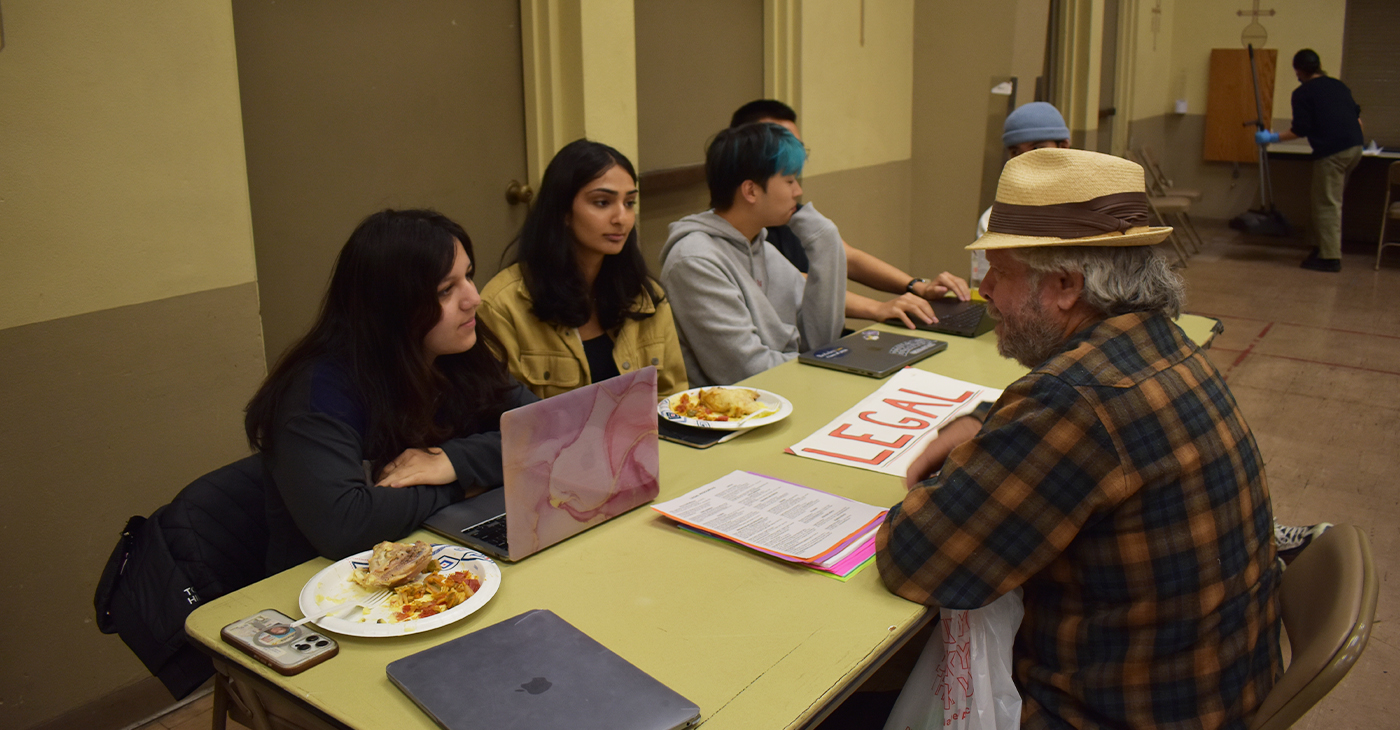Commentary
Commentary: Here’s Why You Need to Vote in the California Recall Election
We cannot afford to be complacent and watch like spectators as our rights are rolled back, our interests are ignored, and our power is discounted. This recall election will be a crucial test of our will as voters.

On September 14, a special election will be held to determine whether Governor Gavin Newsom should be recalled. This is only the fourth time in American history – that a state has held a gubernatorial recall election.
The last gubernatorial recall election in California took place nearly 20 years ago.
This recall election was triggered after the Secretary of State certified that 1.7 million Californians signed a petition demanding a vote to remove Newsom from the office he assumed in January 2019.
Under state law, to initiate a recall, proponents need to collect the signatures of enough registered voters to equal 12% of the turnout in the prior governor’s race.
The recall ballots will ask two questions. The first is a simple yes-or-no question: should Newsom be recalled. If 50% or more of voters mark ‘NO’ then the effort to recall Newsom is defeated.
However, if more than 50% mark ‘YES’ then the second question comes into play: who should replace him? There are 46 names on the ballot, and the candidate with the most votes, as dictated by state law, will become governor for the remainder of Newsom’s term – which is through January 2023.
Whether or not you support Newsom, your vote in this election matters.
When we cast a vote, we win. We are represented. That’s the power that lies at the heart of the democratic process. It is the beauty of having free and fair elections.
Black Americans have a long history of struggling to exercise their right as citizens to vote. Those who came of age before 1965, less than 60 years ago, felt it all too keenly, particularly in the South, where they were systematically turned away from polling places.
Once they secured the vote, the idea of not even attempting to participate in an election would have been an abdication of their rights as Americans.
The people we entrust with our vote to lead us — whether it is at the federal, state, or local level – are responsible for developing policies and legislation that affect how safe we are in our homes and communities, our access to quality health care and education, the financial opportunities available to us, and more.
An outcome of the 2020 Presidential election cycle has been an extension of the unprecedented assault on voting rights beginning with the Supreme Court decision, Shelby v. Holder (2013), weakening the Voting Rights Act of 1965, and has led to more laws restricting our ability to vote.
California has taken extraordinary steps to remove barriers and increase access to the polls, setting the national standard for what free and fair elections should look like.
We cannot afford to be complacent and watch like spectators as our rights are rolled back, our interests are ignored, and our power is discounted. This recall election will be a crucial test of our will as voters.
Sometimes it might feel like democracy happens election by election, step by step, once every two or even four years.
But democracy doesn’t work like that. It doesn’t take a day off. It’s a constant process, happening all the time, whether we choose to engage or not. It’s messy, ugly, hard work.
Not voting is just as much an act of democracy as is voting – refusing to participate is a choice.
Every registered voter will automatically receive a ballot. Vote by mail started Aug 16. The last day to register to vote is August 30.
However, you can “conditionally” register and vote at your county elections office or polling location after the voter registration deadline, up to and including Election Day.
It’s a chance we must seize, regardless of party affiliation – our democracy, our community, our lives depend on it.
Rick L. Callender, Esq. is the President of the California/Hawaii State Conference of the NAACP and serves as a member of the National NAACP board of directors.
Activism
‘Donald Trump Is Not a God:’ Rep. Bennie Thompson Blasts Trump’s Call to Jail Him
“Donald Trump is not a god,” U.S. Rep. Bennie Thompson, D-Miss., told The Grio during a recent interview, reacting to Trump’s unsupported claims that the congressman, along with other committee members like vice chair and former Republican Rep. Liz Cheney, destroyed evidence throughout the investigation.

By Post Staff
U.S. Rep. Bennie Thompson, D-Miss., said he not intimidated by President-elect Donald Trump, who, during an interview on “Meet the Press,” called for the congressman to be jailed for his role as chairman of the special congressional committee investigating Trump’s role in the Jan. 6, 2021, mob attack on the U.S. Capitol.
“Donald Trump is not a god,” Thompson told The Grio during a recent interview, reacting to Trump’s unsupported claims that the congressman, along with other committee members like vice chair and former Republican Rep. Liz Cheney, destroyed evidence throughout the investigation.
“He can’t prove it, nor has there been any other proof offered, which tells me that he really doesn’t know what he’s talking about,” said the 76-year-old lawmaker, who maintained that he and the bipartisan Jan. 6 Select Committee – which referred Trump for criminal prosecution – were exercising their constitutional and legislative duties.
“When someone disagrees with you, that doesn’t make it illegal; that doesn’t even make it wrong,” Thompson said, “The greatness of this country is that everyone can have their own opinion about any subject, and so for an incoming president who disagrees with the work of Congress to say ‘because I disagree, I want them jailed,’ is absolutely unbelievable.”
When asked by The Grio if he is concerned about his physical safety amid continued public ridicule from Trump, whose supporters have already proven to be violent, Thompson said, “I think every member of Congress here has to have some degree of concern, because you just never know.”
This story is based on a report from The Grio.
Activism
City of Oakland Celebrates Reopening of Main Library
“Libraries are such critical facilities for all Oaklanders, whether it’s children coming to story-time, adults reading the newspapers or borrowing the latest novels, and people engaging with a range of services and programs that the library hosts,” said Council President and District 2 Councilmember Nikki Fortunato Bas. “Such library services and programs are only possible when the facility’s electricity, heating, roof, and lighting are fixed and running efficiently. I’m proud to join this re-opening of our Main Public Library.”

The branch had been closed since May for critical infrastructure upgrades
Special to the Post
The City of Oakland leadership and community partners gathered to celebrate the reopening of the Main Library after completion of critical infrastructure upgrades to enhance the library’s facilities and provide a better experience for patrons.
Renovations include new roof installation, skylight repair, critical electrical system upgrades, new boiler control system installation, auditorium heating and cooling system installation, and improvements to lighting, flooring and ceilings throughout the building.
“This is truly something to celebrate, the reopening of our wonderful Main Library! I congratulate the staff and our partners for this important project to make the Main Library a more comfortable place for everyone for years to come, said Oakland Mayor Sheng Thao. “Thank you to Oakland voters and the California State Library for making these crucial improvements possible.”
“Libraries are such critical facilities for all Oaklanders, whether it’s children coming to story-time, adults reading the newspapers or borrowing the latest novels, and people engaging with a range of services and programs that the library hosts,” said Council President and District 2 Councilmember Nikki Fortunato Bas. “Such library services and programs are only possible when the facility’s electricity, heating, roof, and lighting are fixed and running efficiently. I’m proud to join this re-opening of our Main Public Library.”
“Public libraries are a wonderful resource for our residents, offering a safe space for learning and being,” said District 3 Councilmember Carroll Fife. “It is critical to improve and modernize our libraries so more members of our community can utilize and enjoy them. I’m excited that the necessary renovations to the Main Library have been completed successfully and thank everyone involved, particularly the City team, who helped secured the necessary grant funds for this work.”
“I am proud of the City staff and project partners who kept this important project on schedule and under budget,” said Assistant City Administrator G. Harold Duffey. “The library is an incredibly important resource for our community members, and this project is an investment into the library’s future.”
“December 2nd was a momentous occasion for Oakland Public Library as we proudly reopened the doors of the Main Library following extensive infrastructure repairs,” said Director of Library Services Jamie Turbak. “Closing the Main Library for six months was no easy decision, as it serves as the central hub for our library system and is truly the heart of Oakland. Yet, this renovation was essential, representing more than just physical upgrades—it reflects our ongoing commitment to creating a safe, welcoming space for everyone.”
The City Administrator Jestin Johnson also attended the press conference and signalled his support for the completion of the record-setting completion of the renovations. Gay Plair Cobb, a newly appointed Library Commissioner said the Library represents the soul and brains of our community.
The Oakland Public Library secured funding for these crititcal repairs through a variety of sources. The California State Library’s Building Forward Library Facilities Improvement Program awarded the Main Branch $4.2 million. To comply with the grant terms, the City of Oakland provided matching funds through Measures KK, as approved by the Oakland City Council in October 2023.
The Main Library will host an Open House to celebrate the reopening on February 22, 2025, 10 a.m. – 5:00 p.m.
About the Oakland Public Library
The Oakland Public Library is a part of the City of Oakland in California and has been in existence since 1878. Locations include 16 neighborhood branches, a Main Library, a Second Start Adult Literacy Program, the Oakland Tool Lending Library, and the African American Museum and Library at Oakland (AAMLO). The Oakland Public Library empowers all people to explore, connect, and grow. Oaklandlibrary.org
Activism
A Student-Run Group Provides Critical Support Services to Underserved Residents
Those visiting The Suitcase Clinic can get legal advice, sign up for food assistance, receive housing resources, get medical help, or enjoy a hot, fresh meal. They can also get haircuts and foot washes from the student volunteers. Nilo Golchini, executive director of the clinic, said one of the goals for most of the students working there is helping bridge the gap of trust that exists between many unhoused people and the healthcare and social welfare systems.

Part One
By Magaly Muñoz
Every Tuesday evening, the dining hall of First Presbyterian Church fills up with dozens of people eating, laughing and moving from table to table, receiving much-needed services from UC Berkeley students – just a few blocks away from the university’s campus.
Individuals seeking support services can be found in this multi-stationed room on the south end of the church talking to law students, student case managers, or receiving medical attention in a corner by healthcare professionals.
This weekly event is hosted by Cal students through a volunteer-run program called The Suitcase Clinic.
The clinic, founded in 1989, was intended to offer free resources to underserved communities in Berkeley and surrounding cities. The majority of the clinic’s clientele are unhoused or low-income people looking for extra support.
Those visiting the clinic can get legal advice, sign up for food assistance, receive housing resources, get medical help, or enjoy a hot, fresh meal. They can also get haircuts and foot washes from the student volunteers.
Nilo Golchini, executive director of the clinic, said one of the goals for most of the students working there is helping bridge the gap of trust that exists between many unhoused people and the healthcare and social welfare systems.
During their tenure in the program, many of the students say they become strong advocates for homelessness rights.

Visitors of the Suitcase Clinic can receive haircuts and foot washing by student volunteers every Tuesday evening. Photo by Magaly Muñoz.
“We’re also standing in solidarity with them. So, it’s not saying, ‘I’m going to help you, but I’m also going to stand with you,’” Golchini said.
Student volunteers get extensive training prior to working directly with clients. Those interested have to take a semester-long class to become versed in areas such as outreach, intersectionality, how to interact with unhoused people, how to sign people up for social services. and more.
Volunteers then get to pick from three different clinics: General, Women’s, or Youth and LGBTQ+.
The General Clinic is the most popular among visiting residents, while Women’s and Youth/LQBTQ+ have more specialized services for attendees.
The Women’s Clinic has many of the similar services to General, but also includes nail painting, childcare, and massages.
The Youth and LGBTQ+ Clinic offers a safe space for young people navigating living on the streets, with services that include housing referrals, wellness and recreation classes and employment resources.
Golchini explained that it’s important for them to keep these clinics separate because the different demographics experience poverty and homelessness differently than those who visit the General Clinic.

Suitcase Clinic student workers posing for a photo with a frequent clinic attendee. The Clinic is open to Berkeley unhoused and low-income residents who need medical or legal service, or a hot meal. Photo by Magaly Muñoz.
“We’re able to provide spaces where people can come in and feel safe and not feel like they’re constantly worried that something’s going to happen to them,” she said.
An outreach team also visits encampments every other Saturday in the Berkeley area to provide hygiene kits and encourage people to visit the in-person clinic, if possible.
However, Golchini said engagement has been low for some time now due to a recent decision by the U.S. Supreme Court that allows cities to ban and cite people for sleeping on the streets.
She said a lot of their clientele got displaced to other cities over time, making it difficult to stay in contact with the services the Clinic was providing for them.
But that hasn’t slowed down the students at the Clinic, if anything, it has pushed them to do more for the community they serve.
-

 Activism4 weeks ago
Activism4 weeks agoOakland Post: Week of November 20 – 26, 2024
-

 California Black Media3 weeks ago
California Black Media3 weeks agoCalifornia to Offer $43.7 Million in Federal Grants to Combat Hate Crimes
-

 Activism4 weeks ago
Activism4 weeks agoAn Inside Look into How San Francisco Analyzes Homeless Encampments
-

 California Black Media3 weeks ago
California Black Media3 weeks agoCalifornia Department of Aging Offers Free Resources for Family Caregivers in November
-

 Black History3 weeks ago
Black History3 weeks agoEmeline King: A Trailblazer in the Automotive Industry
-

 California Black Media3 weeks ago
California Black Media3 weeks agoGov. Newsom Goes to Washington to Advocate for California Priorities
-

 Activism3 weeks ago
Activism3 weeks agoOCCUR Hosts “Faith Forward” Conference in Oakland
-

 #NNPA BlackPress4 weeks ago
#NNPA BlackPress4 weeks agoPRESS ROOM: Clyburn, Pressley, Scanlon, Colleagues Urge Biden to Use Clemency Power to Address Mass Incarceration Before Leaving Office























































